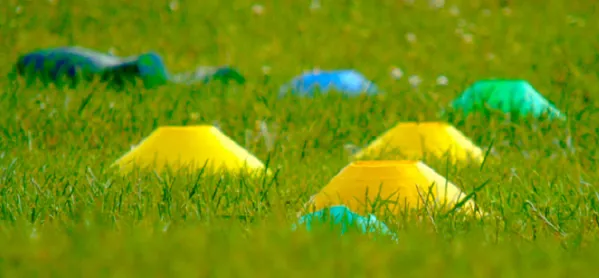- Home
- ‘Teachers can learn a lot from PE’
‘Teachers can learn a lot from PE’

My PE teachers at school definitely didn’t subscribe to the growth mindset. I was a spectacled asthmatic with coordination so bad that I regularly fell over just walking around. Even though my tiny rural primary school literally didn’t have enough students to make up a football team, I was usually left waving off the minibus crammed with my classmates and a couple of stand-ins from the year below who, it was hoped, wouldn’t be quizzed on their age. It was the loneliest feeling in the world, because I really did want to join in, but winning was more important to the teachers and the team.
What I’ve seen this year, teaching an English group down at my college’s spectacular outdoor-education centre, couldn’t be further from my own school experience. The sport teachers are supportive, inclusive, and focussed on every individual’s personal progress.
Things have changed in sport instruction globally, thanks to figures like Ronnie Heath whose work on coaching and on making PE accessible and enjoyable has paved the way for the spectacled asthmatics of 2018 to have fun with physical activity and to understand that anyone can get better at anything. “We celebrate effort, risk, creativity, and personal best over present performance,” explains Heath, a former education leader and national basketball-league coach who now works with schools and colleges to bring about the much-needed cultural change. “Real PE is educational, rather than just teaching sports.”
A haven
Unexpectedly, the quayside centre my college uses as a base for everything from canoeing and kayaking to caving and climbing has become a haven for me this year. Nobody likes marking mountains of mock exams, but doing so on a sunny balcony overlooking a canal has its charm. Timetabling, when carried out to the drumming of a dragonboat full of our delighted students, becomes a much more enjoyable exercise. Most of all, though, I’m inspired by the passion of the instructors: Being at your desk consistently for 8am is one thing, but to be there at that time after an early-morning hike on the moors, or a dawn-lit kayak adventure, speaks of a deep love of subject that I both admire and envy. Full disclosure: I am not powering through novels pre-8am.
The beauty of outdoor education is that learners are not set up in competition with each other. They compete with themselves to improve their own performance, or they compete with nature in the form of wind, waves, or rock. The interactions they have are supportive. On my balcony over the pontoon, I’ve witnessed students double-checking each other’s buoyancy aids, sharing tips on balance and technique, and playfully splashing each other to cool down. Watching such cooperation between learners of different ability and agility, I can’t help but want to capture it in my own classroom.
It’s fair to say that Ronnie Heath’s had more influence on my English teaching than any other training or pedagogical research I’ve encountered. The premise of his approach is that any activity can be accessible to anyone on some level but can always provide opportunities for challenge and progress. Just this week, given the task of training learning assistants to better support students in English GCSE resits, I ended up using a carousel of PE activities to first of all demonstrate what it feels like to be a resit learner, out of your comfort zone and doing something you don’t believe you can do, and secondly to model the power of coaching and mutual support.
Tangible fun
I was blessed with a very willing group, but the fun we were all having was tangible, despite our low athletic starting points. That’s what we should be able to achieve in an English classroom too: Like sports, stories are inherently fun. If diving into a river or diving into a book cause fear, something has gone very wrong with the teaching.
Last weekend, inspired by my outdoor-ed colleagues and students, I gave sea kayaking a go for the first time. I immediately capsized just trying to get my fat backside into the thing through the surf. Later I went under again, trying to get out of the thing. Both times I got a gob full of saltwater and both times surfaced to laughter. My own laughter. It was thrilling.
I’ll get better at kayaking because I’ll keep having fun and I’ll keep giving it a go. Equally, I don’t care how many attempts it takes for my learners to get the grade they need in GCSE English as long as I have any ideas left to keep making it fun and worth having a go at. I will not be the driver of the minibus that sees someone left behind.
Andrew Otty leads 16-19 English in an FE college. He is an ambassador for education charity SHINE
Keep reading for just £1 per month
You've reached your limit of free articles this month. Subscribe for £1 per month for three months and get:
- Unlimited access to all Tes magazine content
- Exclusive subscriber-only stories
- Award-winning email newsletters



